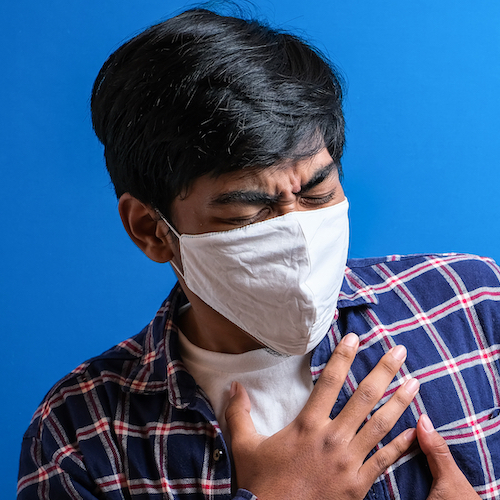Cancer is one of the most feared diseases, not only for the person who is battling it, but also for their family members who might be affected by it. According to the data from the Philippine Statistics Authority, cancer is the third leading cause of death in the country as it caused 14,928 recorded deaths from January to April 2022.
Most of us understand that the risk of cancer comes from factors like smoking, obesity, and environmental toxins, to name a few. However, one factor people are very concerned about would be the impact of family history. Take a look at this quick read that will explain how genes can cause cancer, and how to avoid cancer that runs in the family.
What Are the Chances of Getting Cancer if It Runs in Your Family?
Most people think that the disease itself can be passed down from one generation to another. However, this is actually not the case. According to the National Cancer Institute, it is possible for cancer to “run” among families if a parent passes a mutated gene to their offspring via a sperm or egg cell.
While the presence of a gene mutation can raise someone’s risk for cancer, it does not automatically mean that a person will develop cancer in his/her lifetime. In fact, the American Cancer Society (ACS) notes that only 5% to 10% of cancer cases may arise due to gene mutations inherited from a parent.
In other cases, it is also possible for cancer to be prevalent in a family if the members have certain combinations of genetic variants that cause small increases in cancer risks. Plus, in some instances, multiple family members can be diagnosed with cancer by chance.
What Is Family Cancer Syndrome?
As highlighted by ACS, if there is a gene change that can increase cancer risk runs in a family, it is often referred to as a family cancer syndrome. This is also called inherited cancer syndrome or genetic cancer syndrome.
The inherited abnormal or mutated gene can be passed on from generation to generation. However, as mentioned earlier, about 5% to 10% of all cancers are known to be strongly linked to gene defects inherited from a parent. Moreover, cancer might be more common in some families attributed to certain behaviors or exposures that increase cancer risk, such as smoking and obesity.,
Can Genetic Testing Be Helpful?
Some health experts cite the importance of genetic testing among people with known family history of cancer. Detecting particular genetic mutations that may put someone at risk for developing cancer can help create strategies that can improve the quality of life.
This type of testing involves submitting blood or saliva samples since cell mutations that may raise cancer risk affects all the cells in a body.
However, before undergoing genetic testing, consult a doctor or a health practitioner first. They can look into your personal medical history or that of your family’s to determine if there are patterns that may indicate a higher cancer risk. This step is important because it is said that genetic testing may not be beneficial for everyone.
How to Prevent Cancer if It Runs in the Family
Do remember that the prevalence of cancer in a particular family is not just related to genes. Factors such as lifestyle habits, environment, or exposure to air pollution or cigarette smoke can still play a major impact. Take note of these tips that may help lower the risk of cancer in your family:
- Stop smoking or using tobacco products.
- Eat a balanced diet loaded with nutritious food.
- Exercise frequently to maintain a healthy weight.
- Apply sunblock often and try to protect yourself from sunlight.
Moreover, you can ask blood-related relatives such as your parents, grandparents, aunts, uncles, and/or cousins about your family’s history of cancer. Try to determine if you have had relatives who were diagnosed with or unfortunately passed away because of any form of cancer.
According to the Centers for Disease Control and Prevention (CDC), you can talk to a doctor if your family has a history of cancer, particularly breast, ovarian, uterine, or colorectal cancer. They can also help you understand more about the risk you may be dealing with and determine whether you need to undergo further testing or genetic counseling. The latter entails looking for mutations in your DNA that may predispose you to certain types of cancer.
For more information, you can also check out the American Cancer Society’s (ACS) guidelines on when you should have yourself regularly checked for specific types of cancer.
Should you have additional questions about how to prevent cancer that runs in the family, visit Hope from Within for more information.
References:
https://www.ncbi.nlm.nih.gov/pmc/articles/PMC5915125/
https://www.ncbi.nlm.nih.gov/pmc/articles/PMC9857053/
https://www.ncbi.nlm.nih.gov/pmc/articles/PMC2515569/
https://www.cancer.gov/about-cancer/causes-prevention/risk/substances
https://www.cancer.gov/about-cancer/causes-prevention/genetics#is-cancer-hereditary
https://www.cancer.org/healthy/cancer-causes/genetics/family-cancer-syndromes.html
https://www.mdanderson.org/prevention-screening/family-history/hereditary-cancer-syndromes.html
https://www.mayoclinic.org/healthy-lifestyle/adult-health/in-depth/cancer-prevention/art-20044816
https://www.cdc.gov/cancer/family-health-history/index.htm
https://psa.gov.ph/content/2022-causes-deaths-philippines-preliminary-31-may-2022








